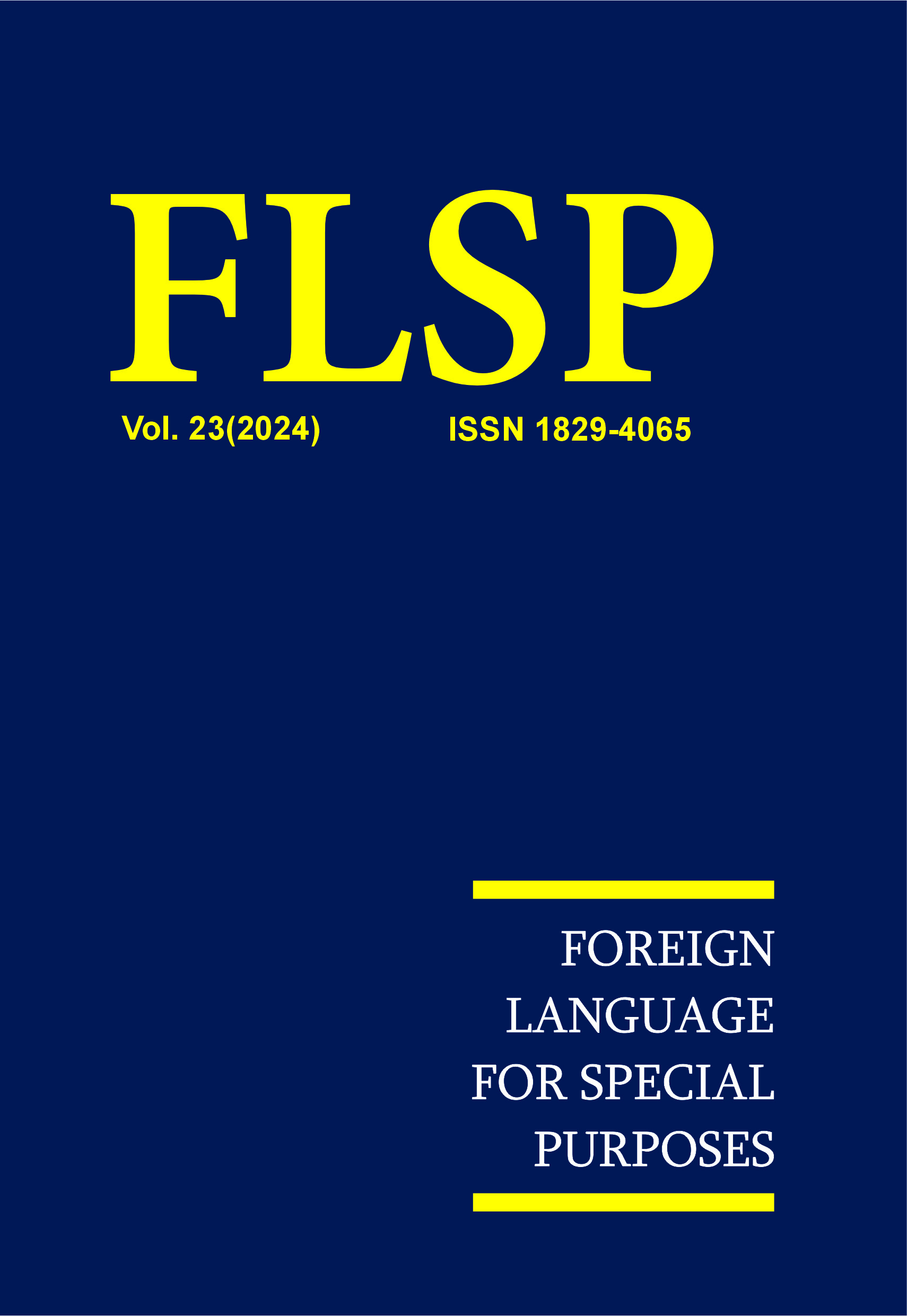EVALUATION AS A MEANS OF PERSUASION IN ENGLISH POLITICAL DISCOURSE
DOI:
https://doi.org/10.46991/FLSP.2024.23.023Keywords:
Evaluation, persuasion, manipulation, argumentation, political discourseAbstract
The main goal of political discourse is to influence people and its main communicative strategy can be defined as the strategy of persuasion which involves such substrategies as manipulation, argumentation and evaluation. Evaluation / appraisal is an important part of the strategy of persuasion and is mainly connected with the affective domain. It includes such categories as attitude consisting of feelings, judgements and appreciations, as well as engagement and graduation. The research has shown that in English political discourse emotional evaluations and appraisals, both positive and negative, explicit and implicit, prevail over logical ones. Influenced by the basic semantic opposition of political discourse “we – they” and reflecting the relevant stance of the speaker, different types of evaluative statements tend to provoke in the audience feelings similar to those of the speaker, shape listeners’ perception, reinforce or change their cognition and opinion, predetermine their emotional reactions and actions.
References
Bandler, R., Roberti, A., Fitzpatrick, O. (2013). The Ultimate Introduction to NLP. N.Y.: HarperCollins.
Bandler, R., & John Grinder, J. (1975). The Structure of Magic: A Book About Language and Therapy. Santa Clara, Cal.: Science and Behavior Books, Penguin.
Dijk, T.A. van. (2006). Discourse and Manipulation. Discourse & Society, vol. 17 (2),
Hunston. S. (2011). Corpus Approaches to Evaluation: Phraseology and Evaluative Language. N.Y., L.: Routledge.
Ivin, A. A. (1997). Foundations of the Theory of Argumentation. Moscow: VLADOS.
Martin, J.R., White, P.R.R. (2005). Language of Evaluation. Appraisal in English. Basingstoke: Palgrave Macmillan.
Thompson, G., & Hunston, S. (2006). Evaluation in Text. In Brown, K. (Ed.), Encyclopedia of language and linguistics (pp.305-312). Oxford: Elsevier.
Ивин А. А. (2004). Теория аргументации. М.: Гардарики.
Шейгал Е.И. (2004). Семиотика политического дискурса. М.: Гнозис.
Internet Sources of Data
White, P.R.R. (2001). The Language of Attitude, Arguability and Interpersonal Positioning // https://www.grammatics.com/appraisal/index.html; https://www.grammatics.com/appraisal/appraisalguide/unframed/stage2-attitude-judgment.htm (accessed 23.03.2024)
Inaugural Address by President Joseph R. Biden, Jr. January 20, 2021//
https://www.whitehouse.gov/briefing-room/speeches-remarks/2021/01/20/inaugural-address-by-president-joseph-r-biden-jr/ (accessed 25.03.2024)
Downloads
Published
Issue
Section
License
Copyright (c) 2024 Samvel Abrahamyan

This work is licensed under a Creative Commons Attribution-NonCommercial 4.0 International License.
Creative Commons Attribution-Non-Commercial (CC BY-NC). CC BY-NC allows users to copy and distribute the article, provided this is not done for commercial purposes. The users may adapt – remix, transform, and build upon the material giving appropriate credit, providing a link to the license. The full details of the license are available at https://creativecommons.org/licenses/by-nc/4.0/

